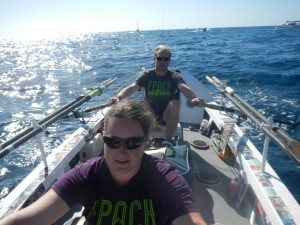Fraser Schilling, of California Roadkill Observation System, is already using citizen science to collect information on animals struck on California’s motorways. The website at https://www.wildlifecrossing.net/california/ is available to anyone who wishes to report roadkill in California and upload pictures and information for researchers to review. The goal is to analyze problem areas and collect data that will inform policy and management decisions to reduce animal deaths on America’s roads. By identifying carcasses on huge sections of road, Sonya and her team can provide Schilling with a complete picture of their route in a single condensed period of time. Additionally, the team is currently traveling by bike at a rate that affords them the opportunity to identify and examine roadkill that might otherwise go unnoticed. While this is an excellent opportunity for people looking to help out in California, ASC’s Gregg Treinish has indicated that roadkill observation is available for other projects nationwide, and for anyone who wants to get involved to make U.S. highways safer for wildlife.
Team Epoch will be collecting data on the other portions of their trip, as well. While kayaking, they will be collecting information for Mike Deas of Watercourse Inc. Deas is currently working through ASC with Rivers for Change on 12 Rivers in 2012, which is exploring California’s twelve major watersheds, source to sea. You can learn more about this project by scrolling down to the blog post from March 14, 2012. For the PCT through hike, the adventurers will be working with The Craighead Institute to gather data on pikas.
Epoch Expeditions is a nonprofit wilderness education organization that strives to connect people of all ages with the wild in a variety of ways. Their options for wilderness outings range from weekend team building trips to complete wilderness immersion– treks of 100 days or more. For more information on Epoch Expeditions, as well as 400Challenge, visit www.teamepoch.org.
If you’re disappointed that data wasn’t collected during the ocean portion of Team Epoch’s journey, you can take heart in the fact that opportunities for adventurer and scientist collaborations will increase as awareness about ASC and the services it provides continues to grow. In fact, Limited Intelligence, the boat Team Epoch used to cross the Atlantic, is being used by four other ASC adventurers who will be attempting the first ever row across the Arctic Ocean. These four men will be collecting data on plankton and whale movement for researchers at the University of Alaska, Fairbanks. To learn more about this expedition, see the blog post from March 19, 2012.
Liam Dillaway

